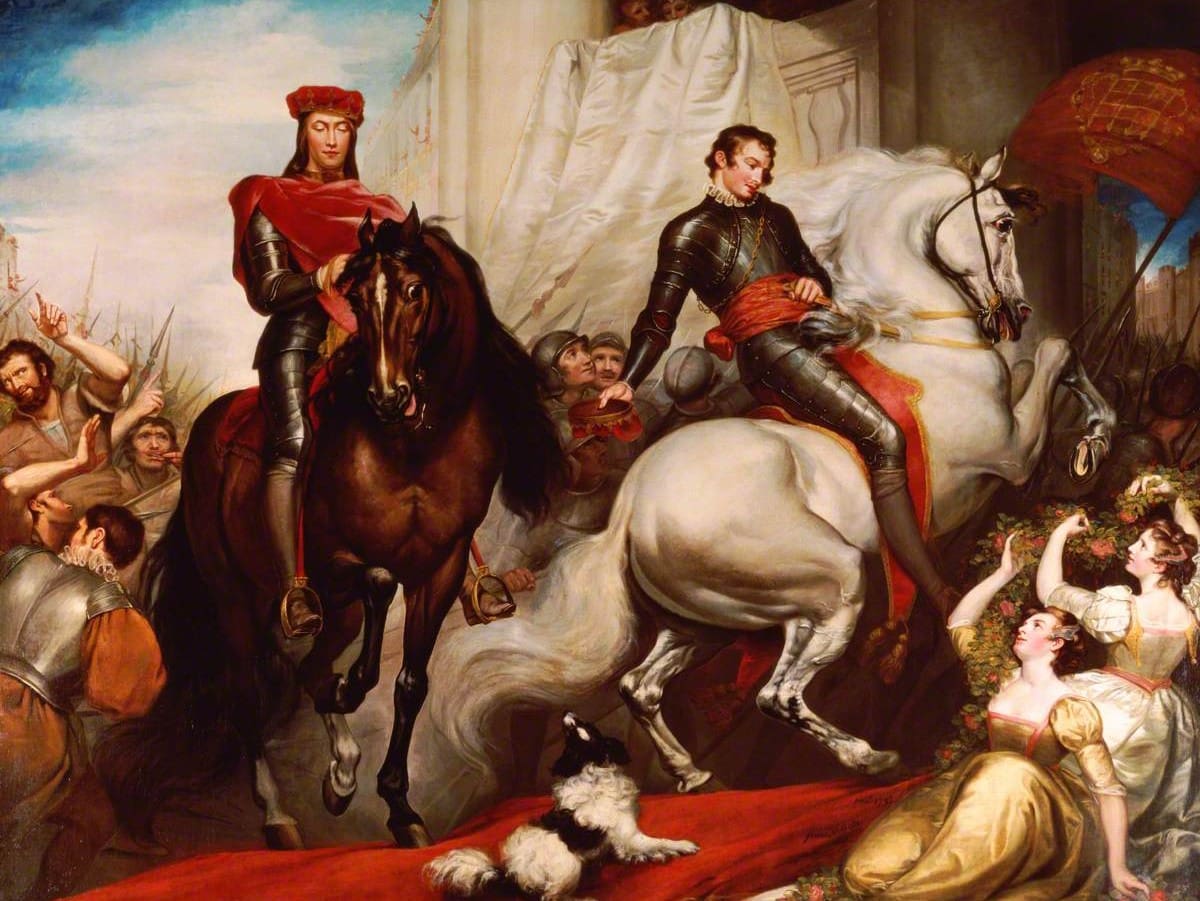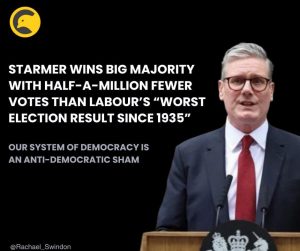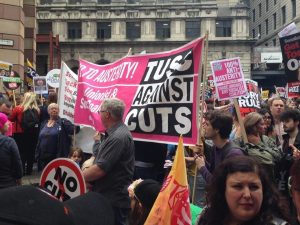This royal throne of kings, this sceptred isle,
This earth of majesty, this seat of Mars,
This other Eden, demi-paradise,
This fortress built by Nature for herself,
Against infection and the hand of war,
This happy breed of men, this little world,
This precious stone set in the silver sea,
Which serves it in the office of a wall,
Or as a moat defensive to a house,
Against the envy of less happier lands,
This blessed plot, this earth, this realm, this England.
William Shakespeare; Richard II
Great Britain, Grande Bretagne, Rule Britannia.
Were Shakespeare to be reborn, hopefully in one of the NHS hospitals with a safe maternity unit, would he grow up to write these same words again? Those of an unquestioningly patriotic disposition toward the UK should skip this article.
‘Great’ Britain: a continuing insouciance towards humanity
Great Britain is no longer truly great, or the envy of less happier lands. Perhaps it never really was. The UK is the remnant of an empire whose significant wealth and global prestige has been built on battle, blood, conquest, sweat, enterprise, ingenuity, exploitation, and no shortage of abject human misery.
When the words of the iconic, ironic, and patriotic sing along, Rule Britannia were being penned almost three-hundred-years ago, a ditty still sung alongside Land of Hope and Glory at the finale of the Proms each year, Britain was one of the most active slave trading nations on the face of the earth.
Its insouciance toward humanity exceeded only marginally by Portugal. And in truth, the forced transport of slaves and their subsequent exploitation was to the privileged entitled and ruling classes of the time, merely a logical extension to the treatment of their own lower classes.
The indentured conditions of the poor and disenfranchised who worked in many of Britain’s coalmines, especially those in Scotland that were owned by the English nobility, were a legitimised form of slavery in all but name. Whilst the wilfully blind middle and upper classes might have found it rousing to sing that Britons never, never, never would be slaves, in reality many Britons already were.
Slavery and exploitation have never been selective.
Engels and Marx: turning in their graves?
In 1845 as a direct result of seeing the horrendous conditions in which the English working classes lived and worked in Manchester in the early Nineteenth Century, Friedrich Engels published his seminal and shocking work The Condition of the Working Class in England. The book had a huge influence on the thinking of Karl Marx and the development of what became known as Marxism.
The communist manifesto itself, the literary blue touch paper that lit the flames of some of the most seismic radical global socio-political bonfires in recent history, was conceived, created, and written by Karl Marx and Friedrich Engels.
If British entrepreneurialism created the steam engine and gave birth to the industrial revolution, unrestrained amoral British capitalist greed supplied the narrative that fuelled the creation of communism. Britain is a nation with an incredible and interesting past and an uncertain future. We have a lot to dwell on and still more to work out.
In recent times the collective mental health of our country has been so battered by the artificially generated demands of modern-day life that this sceptered isle is now one of the few nations on Earth that boasts a Minister for Suicide Prevention; and that was before the pandemic and cost-of-living crisis. It’s a staggering state of affairs that things have gotten so undeniably bad for some amongst this happy breed, that we have a minister whose job it is to stop us killing ourselves.
Can you get your head around that?
The state of the NHS, and UK, in 2024
We have more foodbanks and charities per capita than any other country in mainland Europe. The certainty of constant improvement and a better future that was so forcefully sold to us and that we once took for granted, has evaporated. We are the birthplace in which the great railways of the world were first created, yet now we seem unable to even run them on time.
It increasingly feels as if the very physical and emotional infrastructure of Britain is eroding.
Our public services [including the NHS] are crumbling and imploding around us.
The institutions of the state are morally bankrupt.
Parliament is an amoral muddy pool of mendacity, filled with vacuous self-serving bottom feeders more interested in their second incomes than their constituents’ concerns.
Our elections are tampered with by foreign powers while the House of Lords plays host to the offspring of Russian Oligarchs and former KGB officers.
The venal and corrupt occupy and abuse the offices of power they hold and think nothing of plundering the public purse in the midst of a global pandemic for their own gain.
The democracy we were once told we could be so proud of is openly, brazenly, self-interestedly, and unashamedly rotting to its core. So much so that Roberto Saviano, a journalist, screenwriter, and one of the world’s leading authorities on the mafia cited the UK as one of the countries and economies most open to corruption and bribery.
And even before the arrest and eventual prosecution of the serial rapist David Carrick in January 2023, less than one in ten women had full faith in our Police and Crown Prosecution Services.
The land of smoke and mirrors
But what we on this island of hope and glory do remain genuinely great at, the arena in which we shine and excel, the craft we seem to have perfected, is the art of telling ourselves and every other nation how great we are at everything.
The land of smoke and mirrors is most definitely a great and glorious public relations triumph. Which other nation would have the chutzpah to strut the global stage so visibly when its own arse is showing through the threadbare seat of its pants and the very developments it brought to the rest of the world are falling into decay within its own boundaries?
We are like the child that’s been moved to a new school who tells everyone that the tired decrepit flat they are living in is just a temporary second home, and their dad is never around to pick them up from the playground because they are working abroad on an important and well-paid adventure, when in reality, they are serving a sentence in Millom Prison for petty theft.
In the course of my life and work [some for the NHS] I have travelled the length and breadth of the United Kingdom and though there is undoubtedly a great deal to be proud of, to be curious about, to marvel at, and to celebrate, there is also a great deal to feel sad about. Our past successes are no guarantee of our future flourishing. And whatever history, glorious and otherwise, we might have will not heal the ills that currently beset us.
Nostalgia will not pay the bills. An uneven economy and an increasingly unjust society is eroding our humanity, and a booming economy will not make us whole.
No wealth but life: how the NHS, and society, should be
But what might greatness and great look like if we were to define them now?
How should the greatness of a nation, a society, a civilization be defined in the 21st century, and by whom?
If a nations ambition is a reflection and therefore an extension of the ambitions of its people, shall we continue to stoke the perception of greatness at the individual level as greed, indifference, striving, and the constant selfish insatiable appetite for more and more material growth? Or can we begin to value kindness, tolerance, patience, curiosity, understanding, and emotional intelligence, over excess and affluence?
Is a great nation a healthy nation and if so, what might a healthy population [and NHS] look like?
Is it an absolute measure, a relative measure, and again, who decides?
Presumably, a nation’s health is nothing more than the aggregate sum of the health, wellness, and wellbeing of all its citizens. And our health and wellbeing and how we feel about it is as unique as our fingerprints and DNA.
If there is no wealth but life, and the purpose of our lives is for each one of us to decide, then the only legitimate role of the state and its institutions is to create the conditions in which options, choice, and opportunity are available to all and in which we can be healthy and well enough to capitalise on them.
This article was reworked from the first chapter of Tom’s book, No Wealth But Life – What’s Gone Wrong with Healthcare in Britain & How We Can Save the NHS. You can purchase it via Amazon here, or via Tom’s own website, here. Read more about the NHS from the Canary here.
Featured image via Art UK




